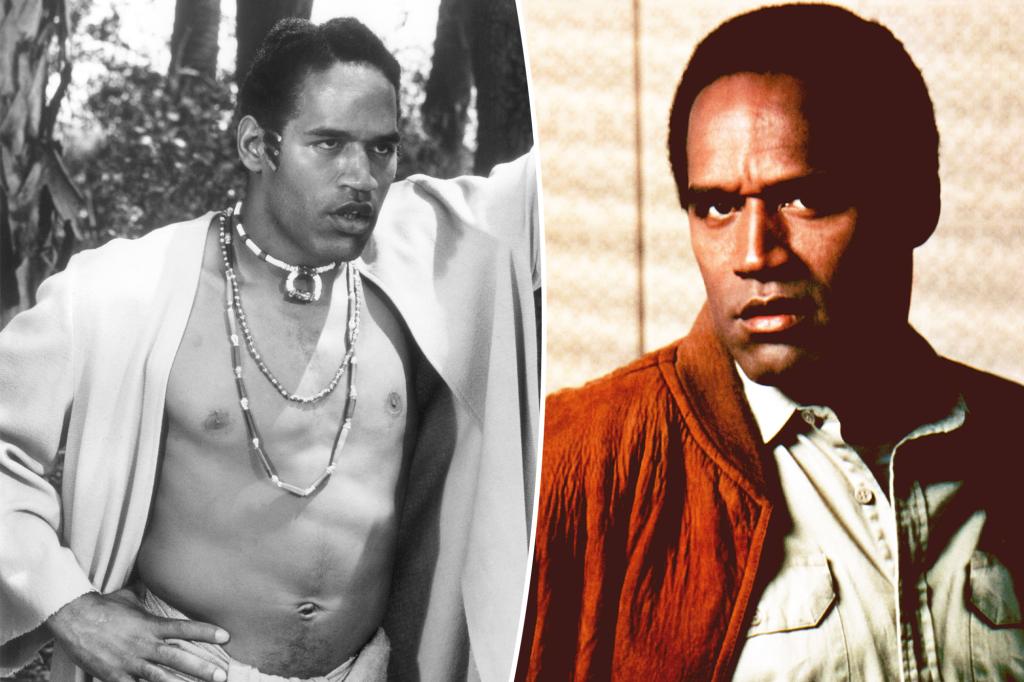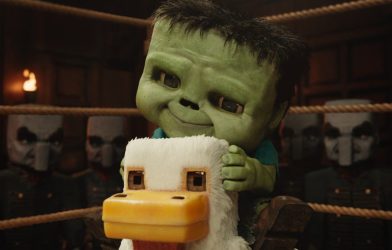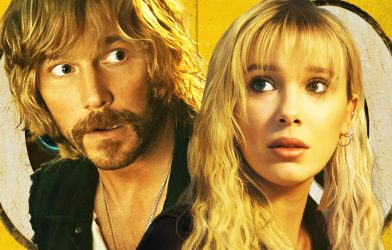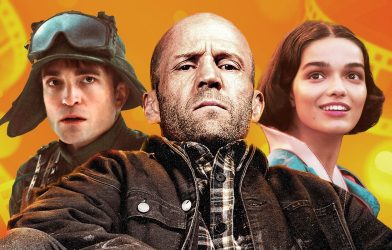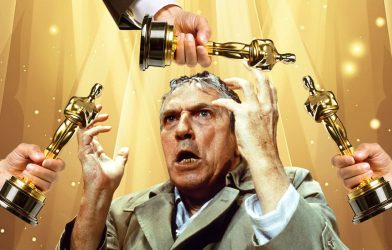O.J. Simpson, who died Wednesday at 76, had a varied career in Hollywood as an actor and a pitchman before his trial for double murder in the 1994 deaths of ex-wife Nicole Brown Simpson and her friend Ron Goldman.
The former Buffalo Bills star with marquee good looks, nicknamed “The Juice,” was at the epicenter of pop culture for his movie, TV and commercial roles throughout the ’70s, ’80s and early ’90s. It seemed, during those days, that you couldn’t turn on your TV without seeing one of Simpson’s Hertz commercials where — as a spokesman for the rental car company — he ran and careened through airports, nor ignore his big-screen work, most notably in the “Naked Gun” movies starring Leslie Nielsen.
Simpson was a big enough star, in fact, that he was pitched to the “Terminator” director James Cameron to star in the 1984 action movie — a suggestion that Cameron said later, in an interview with Chris Wallace, he immediately dismissed.
“I actually think that’s a bad idea,” Cameron recalled thinking, he said on on the Max series “Who’s Talking to Chris Wallace?” The filmmaker, of course, pivoted to Arnold Schwarzenegger for what turned out to be a big-screen blockbuster.
O.J. Simpson as a cybernetic assassin? No one would ever buy it.
A decade later, Simpson became an even bigger star of daytime television — for completely nefarious reasons.
Simpson obviously had his eye on a Hollywood career from the get-go; he reportedly became a professional actor — signing on for an episode of the CBS series “Medical Center” — before inking his NFL contract with the Buffalo Bills. He got his feet wet early while still a Heisman Trophy-winning undergraduate at USC, making a few uncredited appearances on television shows in the 1960s including “Dragnet,” “Ironside,” “It Takes a Thief” and “The Name of the Game.”
He didn’t let his NFL career steer him away from acting, either. While playing for the Bills, he appeared on a slew of TV shows in the early 1970s including “Here’s Lucy,” starring Lucille Ball, and “Owen Marshall, Counselor at Law.” He snared his first prominent movie role in “master of disaster” Irwin Allen’s “The Towering Inferno” in 1974 to help save the day as Security Chief Jernigan, who’s on the scene as a fire envelopes the world’s tallest office building in San Francisco.
But it was his first ad for Hertz, in 1975 — four years before he retired from the NFL — that established Simpson as a ubiquitous pop-culture presence as he bolted through airports wearing a business suit and carrying a briefcase (in nearly every commercial) as he deftly avoided objects and jumped over railings to get to the Hertz counter and be assured his car was waiting for him. Variations on those commercials with Simpson ran until the 1994 murders, when Hertz cut ties with him for obvious reasons.
Simpson’s acting chops were never singled out as anything but good enough, but such was his outsize personality and reputation that he seemed to always be in the right place at the right time. Case in point: He was hired to play West African Kadi Touray — who meets Kunta Kinte (LeVar Burton) outside of his village — in an episode of ABC’s trailblazing epic miniseries “Roots” (1977), one of the most famous broadcasts in television history. (Kadi was the father of the young woman in whom Kunta Kinte was interested.)
That same year, Simpson had a part opposite James Brolin and Sam Waterston as astronaut John Walker in “Capricorn One,” a thriller about a faked Mars landing and a government conspiracy. It cemented Simpson’s big-screen bona fides, and the film has gone on to achieve cult status.
The movie roles and Hertz TV commercials — augmented by appearances on late-night television, as an NFL analyst for NBC — continued and, in 1988, Simpson made comedic noise in “The Naked Gun,” a big-screen parody of cop movies adapted from the ABC series starring the irrepressible Leslie Nielsen as bumbling cop Frank Drebin. Simpson played his equally bumbling sidekick, Nordberg, to great comic effect, and the movie was successful enough to spawn two spinoffs — “The Naked Gun 2½: The Smell of Fear” (1991) and “Naked Gun 33⅓: The Final Insult” (1994), both of which prominently featured Simpson (and are still popular today, but for all the wrong reasons).
And, of course, it was notoriety of a different sort that put Simpson front and center in America’s living rooms during his 1995 murder trial. Dubbed the Trial of the Century, the courtroom theatrics and personalities (Johnnie Cochran, Kato Kaelin, the glove, et al.) riveted America as cable television and networks such as Court TV led their coverage with daily updates and testimony from the proceedings.
(Ditto for Simpson’s civil trial in 1996 — in which he was found liable in the deaths of Brown Simpson and Goldman and was ordered to pay $8.5 million in compensatory damages.)
Simpson’s final dash of television notoriety came with the 2018 Fox special “O.J. Simpson: The Lost Confession,” which included outtakes from a scuttled interview Simpson did to promote his book “If I Did It: Confessions of the Killer” (in which he confessed to nothing).
Load more…
{{/isDisplay}}{{#isAniviewVideo}}
{{/isAniviewVideo}}{{#isSRVideo}}
{{/isSRVideo}}

